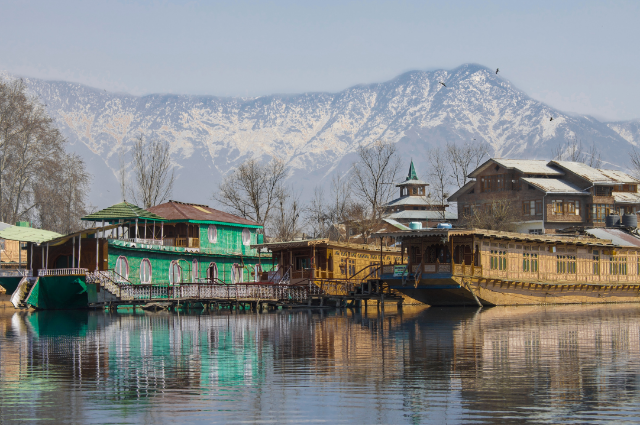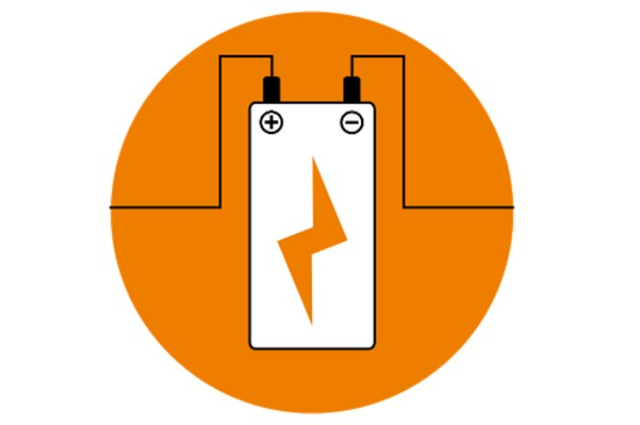
INTRODUCTION
Aristotle: "Minerals are the foundational elements of the Earth, representing the essence of stability and permanence in the ever-changing natural world."
Jammu and Kashmir, located in the northernmost part of India, holds a unique geographical significance within the Indian subcontinent. Nestled amidst the majestic Himalayan mountain range, this region showcases nature's grandeur and presents a formidable terrain that has captivated the imaginations of poets, writers, and explorers for centuries.
With its diverse topography, Jammu and Kashmir not only mesmerize with its picturesque valleys, serene lakes, and snow-capped peaks but also possess a remarkable mineral wealth. Among these resources lies a mineral that has gained tremendous global attention in recent times: lithium.
The growing global demand for lithium stems from its pivotal role in the clean energy revolution, which has become the defining quest of our era. As the world increasingly acknowledges the urgent need to transition from fossil fuels to sustainable energy sources, lithium has emerged as a game-changing mineral in this paradigm shift.
Lithium's significance lies in its application across various industries, especially in the realm of clean energy technologies. It serves as the critical component in rechargeable lithium-ion batteries, which power electric vehicles (EVs), renewable energy storage systems, and portable electronic devices. Without lithium, the wheels of the electric mobility revolution would grind to a halt, and our aspirations for a greener and cleaner future would be dampened.
The surge in global demand for lithium is driven by several factors. Firstly, the rapid growth of the electric vehicle market, spurred by environmental concerns and government incentives, has led to an exponential increase in lithium consumption. Moreover, the integration of renewable energy sources into the power grid necessitates large-scale energy storage systems, where lithium-ion batteries play a pivotal role.
As we navigate the challenges of climate change, lithium stands as a beacon of hope, enabling the decarbonization of transportation and energy sectors. It offers the potential to reduce greenhouse gas emissions, combat air pollution, and alleviate our dependence on finite fossil fuel reserves. Therefore, securing a sustainable supply of lithium has become a matter of strategic importance for countries around the world.
In this context, the lithium reserves of Jammu and Kashmir assume a special significance. The region's geological attributes, including its mountainous terrain and unique mineral formations, present a promising potential for lithium-rich pegmatites. Exploratory efforts are underway, with geological surveys and mining companies actively assessing the lithium deposits in the region.
Unlocking the lithium potential of Jammu and Kashmir holds the promise of not only contributing to India's domestic demand but also establishing the region as a global player in the lithium market. This would not only bolster the country's energy security but also create avenues for economic growth, employment generation, and technological advancement.
However, it is crucial to approach the extraction and utilization of lithium resources with a responsible and sustainable mindset. Mining activities must be carried out in an environmentally sensitive manner, ensuring minimal ecological disruption and appropriate waste management practices. Additionally, community engagement and equitable distribution of benefits are imperative to address social concerns and ensure inclusive development.
GEOGRAPHICAL SIGNIFICANCE OF JAMMU AND KASHMIR:

"Kashmir is the crown jewel of India, and Jammu and Kashmir is its shining embodiment of natural beauty and rich cultural heritage." - Narendra Modi
Jammu and Kashmir, a land of enchantment nestled in the Himalayas, possesses a geological canvas that holds immense promise in the realm of lithium deposits. Its unique topographical features, characterized by the majestic mountainous terrain, endow it with a geological advantage that sets it apart as a potential hotspot for this valuable mineral. The diverse mineral wealth that lies within its ancient rocks further adds to the allure of this region.
The towering peaks and deep valleys of Jammu and Kashmir are a testament to the dynamic geological processes that have shaped the land over millions of years. These geological forces have given rise to a complex interplay of rocks and minerals, creating an environment conducive to the formation of lithium-rich pegmatites. Pegmatites, the geological jewels of the Earth, are igneous rocks known for their exceptional crystal sizes and their propensity to host rare and valuable elements.
Jammu and Kashmir's mountainous terrain, with its vast stretches of igneous and metamorphic rocks, provides a fertile ground for the formation of these pegmatites. These rocks, the result of ancient volcanic activity and subsequent metamorphism, are enriched with the necessary ingredients that give birth to lithium-rich pegmatites. The region's geology, characterized by the presence of granitic intrusions and metamorphic zones, further enhances the potential for significant lithium deposits.
Moreover, Jammu and Kashmir's diverse mineral wealth, ranging from copper and lead to gold and silver, attests to the region's geologically active past. The occurrence of these minerals reflects the complex geological history and the presence of mineral-rich fluids that have percolated through the rocks. Lithium, a highly sought-after element in the modern world, finds itself interwoven within this rich tapestry of minerals, waiting to be discovered and harnessed.
The lithium-rich pegmatites, concealed within the folds of Jammu and Kashmir's rugged landscape, hold immense promise for the region's future. These pegmatites are known to exhibit extraordinary concentrations of lithium-bearing minerals such as spodumene and lepidolite. The presence of these minerals, often found in association with quartz, feldspar, and mica, makes the pegmatites a treasure trove of lithium, waiting to be unlocked.
The significance of Jammu and Kashmir's unique geological features, with its mountainous terrain, diverse mineral wealth, and the potential for hosting lithium-rich pegmatites, cannot be understated. It presents a golden opportunity for the region to harness its natural resources and play a pivotal role in the global lithium market. However, it is imperative that any exploration and mining activities are conducted with utmost care, adhering to sustainable and responsible practices to ensure the preservation of the region's ecological balance and the well-being of its inhabitants.
In conclusion, the geological blessings bestowed upon Jammu and Kashmir have bestowed upon it the potential to become a beacon in the world of lithium deposits. Its mountainous terrain, diverse mineral wealth, and the presence of lithium-rich pegmatites set the stage for a transformative journey, where the region can contribute to the global clean energy revolution while safeguarding its natural heritage. It is a path that must be traversed with wisdom, foresight, and a commitment to sustainable development, ensuring that the benefits of this valuable resource are shared equitably among all stakeholders.
LITHIUM AS A STRATEGIC MINERAL
David Hume: "Minerals, through their properties and interactions, exemplify the regularities and causal connections in nature, providing the foundation for scientific inquiry and understanding."
In the realm of emerging technologies, lithium stands tall as a harbinger of a sustainable future. Its significance is particularly evident in three key areas: electric vehicles (EVs), renewable energy storage, and portable electronics. Allow me to elaborate on the role of lithium in these transformative fields.
- Firstly, electric vehicles have captured the imagination of the modern world, and rightly so. They represent a paradigm shift in transportation, heralding an era free from the shackles of fossil fuel dependency. Lithium-ion batteries power these revolutionary vehicles, offering an optimal balance of energy density, efficiency, and longevity. The lightweight and high energy-storage capabilities of lithium-ion batteries enable EVs to achieve impressive driving ranges while reducing carbon emissions. This convergence of clean energy and mobility is crucial for combating climate change and improving air quality in our congested cities.
- Secondly, renewable energy storage has emerged as a linchpin of the clean energy revolution. As we transition to a low-carbon economy, the intermittent nature of renewable energy sources poses a significant challenge. Lithium-ion batteries provide an elegant solution by storing excess energy during periods of high production and releasing it during peak demand. This enables a more stable and reliable supply of clean energy, reducing our dependence on fossil fuels and promoting the growth of renewable power sources like wind and solar. Lithium's versatility and adaptability have positioned it as a key enabler in realizing the full potential of renewable energy.
- Lastly, portable electronics have become indispensable companions in our daily lives. From smartphones to laptops, tablets to wearable devices, these technological marvels rely on lithium-ion batteries for their compactness, durability, and extended battery life. The high energy density and lightweight nature of lithium make it the preferred choice for powering these devices, ensuring that we remain connected and productive in an increasingly interconnected world.
Now, let us turn our attention to the increasing demand for lithium, driven by the global shift towards sustainable energy solutions. As nations awaken to the urgent need to address climate change, the demand for clean energy technologies has skyrocketed. Lithium's pivotal role in electric vehicles, renewable energy storage, and portable electronics has created a surge in its demand. Moreover, governments worldwide are implementing ambitious policies to decarbonize their economies, further accelerating the adoption of lithium-powered technologies. This surge in demand offers immense economic opportunities for countries with significant lithium reserves.
Here, we must recognize the geopolitical significance of lithium reserves and their impact on domestic economies. Lithium, often referred to as "white petroleum," is now a strategic resource that can reshape the dynamics of power and influence. As nations seek to secure their energy future, the possession of abundant lithium reserves endows a nation with a unique advantage. It grants the ability to drive domestic industrial growth, attract foreign investments, and foster technological advancements. Moreover, countries with a strong foothold in the lithium value chain can gain geopolitical leverage, shaping the global energy landscape and asserting themselves on the world stage.
For our beloved nation, India, the significance of lithium reserves cannot be overstated. As we strive to build a self-reliant, sustainable, and technology-driven economy, harnessing the potential of lithium resources is a strategic imperative. Developing a robust lithium industry would not only reduce our dependence on imports but also create a vibrant ecosystem of innovation, manufacturing, and job opportunities. Furthermore, it would strengthen our position as a global player in the clean energy transition, enabling us to contribute to a greener and more prosperous world.
LITHIUM EXPLORATION IN JAMMU AND KASHMIR

Image reference: Ricarda Mölck from Pixabay
Immanuel Kant: "Minerals, though devoid of consciousness, possess a sublime beauty that can evoke awe and wonder, reminding us of the grandeur and harmony of the universe."
The ongoing efforts by geological surveys and mining companies to identify and assess lithium deposits in the region of Jammu and Kashmir are of paramount importance in unlocking the region's potential as a significant player in the global lithium market. With the increasing demand for lithium in emerging technologies, such as electric vehicles and renewable energy storage, it is imperative to explore and evaluate the lithium potential of this region.
National and international organizations have shown keen interest in mapping and evaluating the lithium resources in Jammu and Kashmir. These organizations bring expertise, technological advancements, and financial resources to expedite the exploration process. Through collaborative efforts, they aim to ensure accurate identification and assessment of lithium deposits, enabling informed decision-making for future extraction.
Geological surveys, conducted by organizations such as the Geological Survey of India (GSI), have been instrumental in mapping the lithological and structural characteristics of the region. These surveys involve field mapping, geophysical surveys, and geochemical analysis to identify potential lithium-bearing geological formations, such as pegmatites. Such surveys provide vital data and insights into the lithological composition, distribution, and abundance of lithium-rich mineral deposits in the region.
Mining companies, both national and international, have also actively engaged in exploration projects in Jammu and Kashmir. These companies employ advanced technologies, such as remote sensing, geophysical surveys, and drilling, to further assess the lithium potential and determine the economic viability of extraction. Their involvement brings technical expertise, operational capabilities, and investment, paving the way for sustainable mining practices.
The current status of lithium exploration projects in Jammu and Kashmir indicates promising findings. Preliminary surveys and exploration activities have identified several areas with high lithium potential. Geological studies have confirmed the presence of lithium-bearing minerals, primarily in pegmatite formations. These findings lay the foundation for future mining operations, providing valuable insights into the size, grade, and distribution of lithium deposits.
Furthermore, significant findings from these exploration projects highlight the region's considerable lithium reserves. These findings not only hold economic significance but also contribute to India's strategic mineral security and its aspirations for self-reliance in the clean energy sector. The discoveries made thus far have sparked enthusiasm among industry players, investors, and policymakers, fostering optimism for the region's economic growth and contribution to the global lithium supply chain.
ECONOMIC AND ENVIRONMENTAL IMPLICATIONS:

Image reference : Shaun from Pixabay
Lithium mining in Jammu and Kashmir holds immense potential for bolstering the local and national economy, while concurrently fostering job creation, revenue generation, and industrial growth. The extraction and utilization of lithium, a critical component in the clean energy revolution, can act as a catalyst for economic transformation and development.
Firstly, the establishment of lithium mining operations in the region would lead to significant job opportunities for the local workforce. The mining sector, known for its labor-intensive nature, would require skilled and semi-skilled workers, thus contributing to the reduction of unemployment rates and improving livelihoods. Additionally, the growth of associated industries, such as manufacturing and battery production, would create a ripple effect, further expanding employment prospects and generating income for local communities.
Furthermore, lithium mining has the potential to boost revenue generation at both the local and national levels. The sale of lithium reserves, either domestically or internationally, can provide a substantial source of income for the region, thus contributing to its overall economic development. Additionally, increased economic activity through mining operations can lead to the generation of tax revenues, which can be utilized for public infrastructure development, education, healthcare, and social welfare programs.
Industrially, the presence of lithium reserves can drive growth and innovation in related sectors. With the rising demand for lithium-ion batteries, Jammu and Kashmir's lithium deposits can attract investments in battery manufacturing plants and other downstream industries. This would not only diversify the region's industrial base but also enhance its competitiveness and technological capabilities, ultimately positioning it as a hub for clean energy technologies.
While acknowledging the economic benefits, it is crucial to emphasize the importance of responsible and sustainable mining practices to mitigate environmental impacts. Lithium mining operations must prioritize environmental preservation and adhere to rigorous standards to prevent long-term ecological damage. Strict regulations must be in place to monitor and control activities related to land use, water usage, and waste management.
Responsible land use practices should ensure the protection of ecologically sensitive areas and the rehabilitation of mined areas to promote ecosystem restoration. Water usage must be managed judiciously, minimizing any adverse impacts on local water sources and ensuring the conservation of this vital resource. Furthermore, waste management should incorporate the use of advanced technologies and processes to minimize the environmental footprint and promote recycling and proper disposal of mining byproducts.
To ensure comprehensive environmental impact assessments, a participatory approach involving relevant stakeholders, local communities, and indigenous groups is vital. These assessments must evaluate potential environmental risks and devise appropriate mitigation strategies. Transparent and accountable governance mechanisms should be established to oversee the mining operations, and regular monitoring and audits should be conducted to ensure compliance with environmental regulations.
SOCIAL AND POLITICAL CONSIDERATIONS:
John Locke: "Minerals, as part of the Earth's natural resources, hold great importance in the social contract, as they are subject to human appropriation and economic value."
Lithium mining in Jammu and Kashmir holds significant social implications, encompassing local community development, infrastructure improvements, and the involvement of indigenous groups in decision-making processes. It is crucial to adopt a balanced approach that prioritizes transparency, accountability, and fair compensation to ensure the equitable distribution of benefits.
Firstly, the extraction of lithium reserves can lead to local community development and upliftment. The mining industry has the potential to create employment opportunities, stimulate economic growth, and enhance the overall standard of living for residents in the region. As new mining operations are established, local communities can benefit from job creation in various sectors, such as mining, logistics, and support services. This employment boost can contribute to poverty alleviation and foster socio-economic development in the region.
Moreover, infrastructure improvements often accompany mining projects, further benefiting the local communities. The establishment of mining operations necessitates the development of transportation networks, power infrastructure, and other essential facilities. These infrastructure investments can have long-lasting positive effects, improving connectivity, accessibility, and overall living conditions for the communities in the vicinity of the mining sites.
Inclusivity and the involvement of local communities and indigenous groups are paramount in decision-making processes related to lithium mining. These groups possess traditional knowledge, cultural connections, and a deep understanding of the land's significance. In order to ensure a sustainable and harmonious approach, it is crucial to engage and consult with these communities. Meaningful participation can take the form of open dialogues, consultations, and consent-based decision-making, where their voices are heard, respected, and incorporated into the planning and implementation of mining projects.
Equitable distribution of benefits is a fundamental principle that must guide lithium mining in Jammu and Kashmir. It is imperative to address the historical marginalization and ensure that the benefits derived from mining activities are shared fairly among the affected communities. This includes not only economic benefits but also the protection of cultural heritage, preservation of ancestral lands, and the well-being of future generations. Fair compensation should be provided for any land acquisitions, disruptions to livelihoods, or environmental impacts experienced by the communities. Transparency and accountability mechanisms should be established to monitor the distribution of benefits and track the social and economic progress of the affected communities.
FUTURE PROSPECTS AND CHALLENGES:

Thomas Hobbes: "Minerals, in their scarcity and intrinsic value, can incite human desires and competition, often leading to conflict and the establishment of power structures."
Jammu and Kashmir's lithium reserves hold tremendous potential in meeting both domestic and global demand. The region's unique geological characteristics and the presence of lithium-rich pegmatites position it as a significant player in the global lithium market. The growing demand for lithium, driven by the shift towards clean energy solutions and the rapid expansion of electric vehicles and renewable energy storage, presents an immense opportunity for Jammu and Kashmir to contribute to the clean energy revolution.
However, realizing this potential is not without its challenges. Infrastructure development is a critical aspect that needs attention. The establishment of efficient transportation networks, power supply, and water management systems is essential for successful lithium mining operations. Improving the region's infrastructure will require significant investment and collaboration between the government and private sector stakeholders. It is imperative to develop a comprehensive roadmap for infrastructure development, considering the unique terrain and environmental factors of Jammu and Kashmir.
Another challenge lies in technology transfer and attracting investments in the mining sector. The extraction and processing of lithium require advanced technologies and expertise. Collaborations with international partners and leveraging their experience in lithium mining can accelerate the technology transfer process. To attract investments, the government needs to create a conducive business environment, ensure policy stability, and offer attractive incentives to mining companies. Additionally, transparent and streamlined regulatory processes will instill confidence in investors.
While harnessing the lithium reserves, it is crucial to prioritize sustainable development strategies. Capacity building and skill enhancement programs should be implemented to equip local communities with the necessary expertise and create employment opportunities. The promotion of downstream industries, such as battery manufacturing and lithium-ion production, can add value to the lithium sector and maximize its economic benefits. Furthermore, emphasis should be placed on responsible mining practices, environmental conservation, and the equitable distribution of benefits among local communities.
In summary, Jammu and Kashmir's lithium reserves offer a significant opportunity to meet both domestic and global demand for this critical mineral. However, infrastructure development, technology transfer, and attracting investments pose considerable challenges. It is vital to adopt sustainable development strategies, focusing on capacity building, skill enhancement, and the promotion of downstream industries. By addressing these challenges, Jammu and Kashmir can position itself as a key players in the lithium market while ensuring long-term socio-economic and environmental sustainability.
